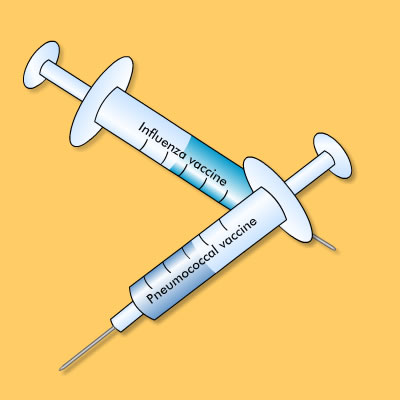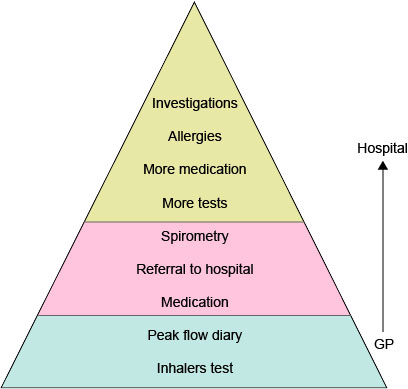
© Crown copyright 2009
The pneumococcal bug or virus is found at the back of the nose and throat of healthy adults and children. It is passed on from person to person through close contact.
Pneumococcal disease is the term used to describe the range of illnesses including pneumonia but also the more serious condition of septicaemia (blood poisoning). Patients with COPD have been found to be at higher risk of developing pneumonia and complications from this.
Research shows that the pneumococcal vaccine gives protection to patients with COPD.











